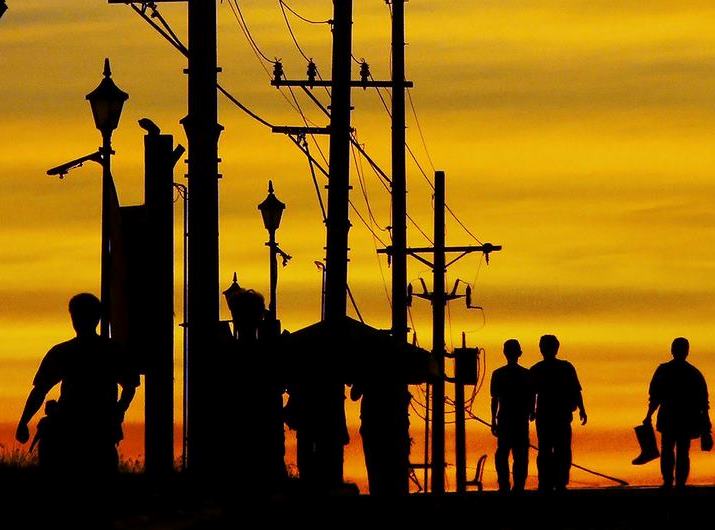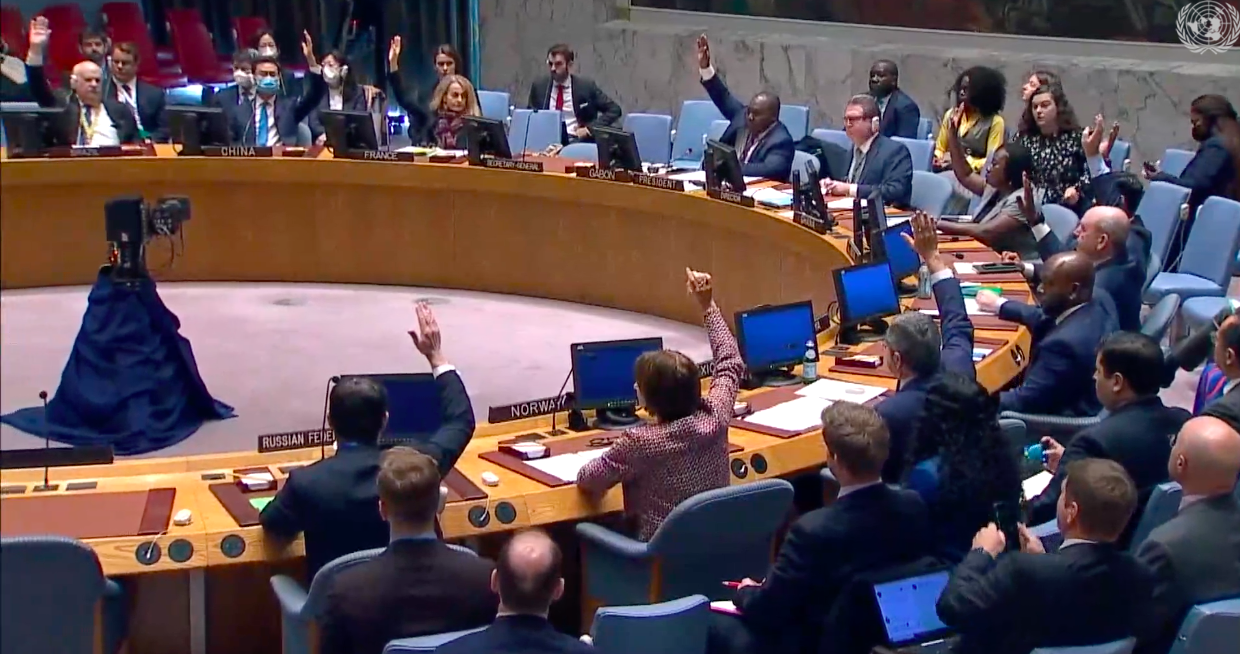The resolution adopted today calls for targeted measures against gang leader Jimmy “Barbecue” Cherizier, whose group is currently blockading the country’s main fuel terminal.
The Security Council today, expressing its “deep concern at the persistent and destabilizing criminal activities by armed gangs in Haiti,” adopted a resolution responding to the deteriorating security and humanitarian situation in the country, setting out a travel ban, asset freeze and arms embargo on individuals and entities responsible for the violence. The resolution, which was tabled by the United States and Mexico, passed unanimously, with 15 votes in favor. (The full text is reproduced below.)
The resolution also singles out one Haiti’s most influential gang leaders, Jimmy “Barbecue” Cherizier, who leads an alliance of Haitian gangs known as the “G9 Family and Allies.” The resolution states that Cherizier and his G9 gang confederation are blocking the free movement of fuel from the Varreux fuel terminal. By the text, the Council note that “His actions have directly contributed to the economic paralysis and humanitarian crisis in Haiti.”
In his latest report on the United Nations Integrated Office in Haiti (BINUH) and an 8 October letter to the Security Council, Secretary-General António Guterres described the deteriorating security situation in the country, underscoring the degree to which its political, security, development and humanitarian dimensions are linked. Civil unrest followed the first anniversary of the assassination of former President Jovenel Moïse on 7 July, with major demonstrations protesting rising inflation and fuel shortages and calling for Prime Minister Ariel Henry’s resignation. On 11 September, Henry announced the removal of fuel subsidies, which triggered a new phase of violent unrest, roadblocks and lockdowns.
“In recent weeks, a dramatic deterioration in security has paralyzed the country,” the Secretary-General’s letter states, noting that the criminal blockade of the fuel terminal has halted water distribution and sanitation and garbage collection. These conditions have contributed to the resurgence of cholera in the country, the letter notes.
By the resolution, and in accordance with Chapter VII of the UN Charter, the Security Council demands an immediate cessation of violence, criminal activities and human rights abuses undermining the peace and security of Haiti and the region. It also urges all political actors to engage in meaningful negotiations to end the current political stalemate.
Security Council sanctions can be broadly defined as restrictions on military, economic or political action, primarily comprising of arms embargoes, asset freezes and travel bans. When used effectively, they can be powerful means to encourage Member States of their global responsibilities. That authority comes from the Charter of the United Nations, which stipulates in Chapter 7, Article 41 that, “The Security Council may decide what measures not involving the use of armed force are to be employed to give effect to its decisions, and it may call upon the Members of the United Nations to apply such measures.”
Sanctions are meant to be temporary measures, which should be terminated once their stated objectives have been achieved. To date, the Security Council has terminated 17 sanctions regimes. The Sanctions Committee established today will join 14 ongoing sanctions regimes.




